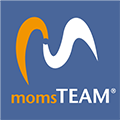Parents, along with teachers, coaches, school nurses, psychologists, and athletic trainers play a crucial role in a child's treatment and recovery from a suspected concussion, especially the all-important decisions about when to return to school ("return to learn") and everyday social and home activity, and, in most cases, to sports.
1. Regularly and closely monitor your child for first 24 to 48 hours.
- Do not allow your child to go to the locker room or home by himself. It is a good safety strategy to take away an essential piece of playing equipment to avoid an 'inadvertent' return to the game
- Waking up your child every 3 to 4 hours during the night is no longer recommended. If you or your doctor are concerned about the possibility of a more serious brain injury such as bleeding inside the brain, your child should undergo a CT scan or MRI (which is NOT normally recommended for a concussion), and be kept for observation in the hospital. Otherwise, sleep is restorative and your child should be allowed to sleep.
- Has a headache that gets worse
- Is very drowsy or can't be awakened (woken up)
- Can't recognize people or places
- Is vomiting repeatedly
- Behaves unusually, seems confused or very irritable
- Experiences seizures (arms and legs jerk uncontrollably)
- Has weak or numb arms or legs
- Is unsteady on his feet or has slurred speech.
- Do not give aspirin or non-steroidal anti-inflammatory medicine(NSAIDs)(e.g. Ibuprofen/Advil®).
- An ice pack on the head and neck is okay as needed for comfort.
- A dim, quiet environment may help with headache, as well as symptoms of sensitivity to light and sound often experienced by student-athletes with concussion. Headaches that continue as part of a post-concussion syndrome (symptoms lasting longer than 4-6 weeks) often require treatment by a team of concussion experts.
- Warn your child against using any substance that could interfere with cognitive function and neurologic recovery.
- While disturbed sleep is a common and important symptom experienced throughout the course of a concussion, and immediately after a concussion, your child may experience either difficulty falling or staying asleep, or sleep longer, in either case, sleep issues should be addressed without medications, and with particular attention to good sleep hygiene. If sleep difficulties persist (e.g. your child is diagnosed with post-concussion syndrome), then medical and cognitive therapies may be considered.
5. Normal diet. A normal well-balanced diet that is nutritious in both quality and quantity should be maintained to provide the needed nutrients to aid in the recovery process. Avoid spicy foods.
- Bed rest is not recommended, but strenuous physical activity, such as sports, PE classes, weight training, bike riding, street hockey or skateboarding, should be avoided until the athlete's symptoms of concussions have gone away.
- Common sense limits on activities that require mental exertion, such as video games, texting, homework, and spending time online, are recommended.
- Most experts recommend at least 24 hours of rest after concussion and think it is reasonable for a child to miss a day or two of school.
- If the child continues to experience symptoms, shortening their school day, reducing their workload in school and homework, and/or allowing them more time to complete assignments or take tests may be necessary.
- Taking standardized tests while recovering from a concussion should be discouraged.
No further treatment is required during the recovery period apart from limiting physical and cognitive activities (and other risk-taking opportunities for re-injury) while concussion symptoms are still present, and most athletes typically resume sport without further problem.
8. Graduated, individualized, conservative return-to-play. Experts strongly recommend against - and all new state laws prohibit - same day return to play in case of suspected concussion, under any circumstances.
- be off all academic accommodations (or temporary "adjustments,"
- be symptom-free;
- have returned to baseline on neurocognitive, balance, and visual tests, and
- have successfully completed a symptom-limited program of gradually increased exercise, which will usually take about a week to complete, with each stage taking 24 hours or longer; if symptoms recur with exertion or at rest at any stage, the athlete returns to the previous stage and tries again 24 hours later.
Parents need to remember that concussion management is not one-size, fits all, and needs to follow an individualized course tailored to their child's unique situation, as each athlete will recover at a different rate (especially for athletes with a history of multiple concussions).
However, as a general rule, a more conservative approach is recommended in deciding when a child or teen athlete can return to play, even if they show no symptoms of concussion,
9. Further testing/management, if necessary.
In some cases, going to see a concussion specialist or team of specialists will be required, especially if the child:
- experiences lingering symptoms. In most cases, obvious symptoms of concussions clear within a week. The presence of post-concussion signs or symptoms lasting more than 7-10 days, or symptoms that reoccur with exercise, suggest a more serious concussion;
- suffered a loss of consciousness at the time of injury of more than a minute or continues to have problems with their memory (either of the ability to remember events before the injury or an inability to remember new things).
- has a history of multiple concussions. If the athlete has suffered one or more concussive events in the past, especially where the injuries appear to be recurring with progressively less impact force (e.g. a minor blow) or takes longer to recover after each successive concussion, a longer recovery time, or even a recommendation against returning that season or to that sport in the future may be warranted; and
- has other neurological problems such as learning disorders and/or attention deficit hyperactivity (ADHD) or a history of migraines.



